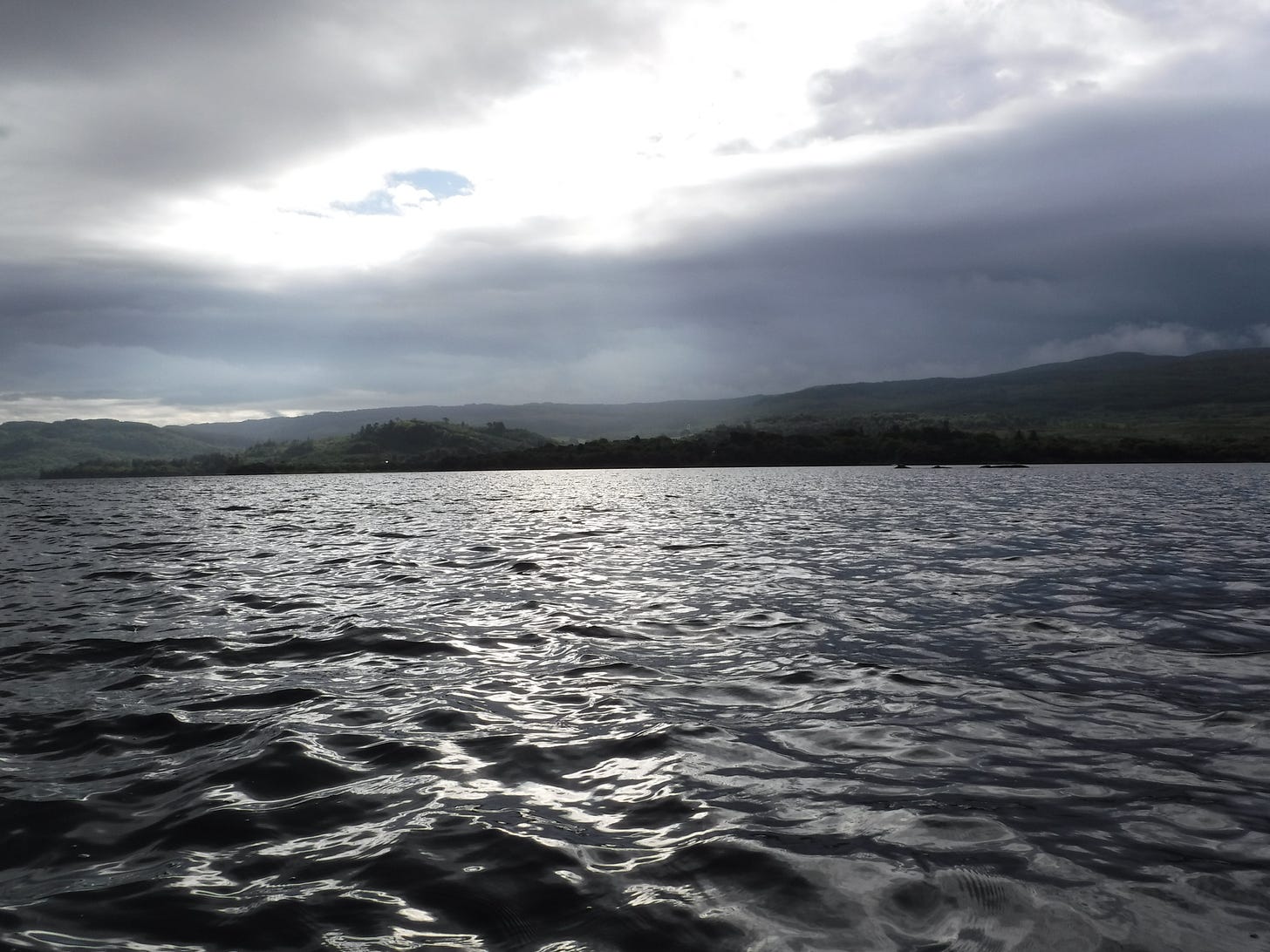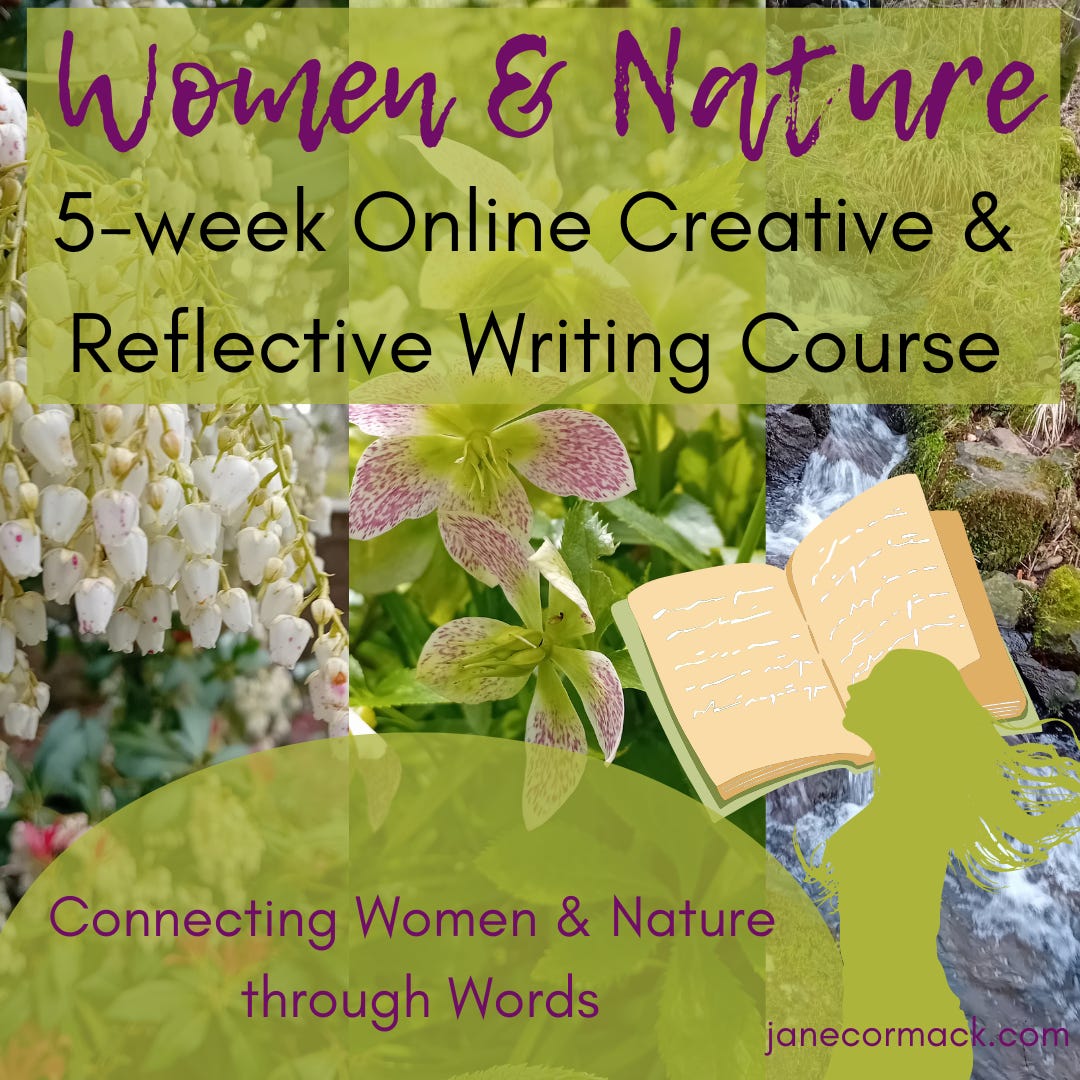There are many ways we can 'be' in nature.
We can spend time in nature and not even notice it.
Perhaps because we’re having imaginary conversations in our heads with people, planning the day tomorrow or just thinking about what to make for dinner. We can get to the end of a nature walk and suddenly ‘wake up’. A bit like driving on a familiar route, and not remembering any of the journey.
We didn’t notice the birdsong, the way the breeze lifted a feather in front of us, or the sun that illuminated the new spring leaves.
Nature can take time to work its magic on our psyches and souls.
Just as we need to be aware of ‘the other’ in our intimate relationships with people, to develop an intimate relationship with the natural world, we need to be aware of ‘the other’, in this case, nature, and the space between us.
To allow intimacy is to allow ourselves to be seen and felt and to see and feel.
Nature is a place where we can relax, let our boundaries dissolve, and be our vulnerable, human, tender selves. When we develop a beautiful, intimate relationship with the natural world, we not only converse with nature, we become a part of the language of nature itself.
The memory of the landscapes we spend time in, the ones we were present to, are carried within us. I can remember moments in nature from years ago. A vivid memory of the paper-thin petals of a delicate violet flower, of which I do not know the name. The way the sunlight shone through the petals, highlighting the veins within it. I remember how I felt sitting on that grassy mound. It was as if it were my last day on earth and I only had a few hours to soak in every beauty, every sensation, every blade of grass and fragile violet flower on that hill, gently blowing in the breeze. I became a part of my environment that day - the landscape infused into my memory.
Sixteen years ago, I moved from the lush landscapes of New Zealand, where I had lived for two years, to west London. Not my brightest idea. I was studying for my MA in Creative and Professional Writing. I struggled with the extreme contrast of environment, having arrived in this new urban landscape after two years of living near the stunning mountains, lakes and then rainforests of New Zealand.
One dark evening, as I went for a walk around the streets of west London, a tiny spark of nature spoke to me…
Urban Rose
Sweet rose,
the pink one
that shared its
faint scent
three times;
I felt a Goddess
in its paper veins.
It connected
to that creative part of me
that forgets,
in these grey surroundings,
the sensation
a simple glint of colour can ignite.
A bed of velvet primulas
becomes illuminated
under night lamps,
a gift to me in urban landscape.
I look,
eyes devouring shape, colour, texture,
miniature nature bed
softening edges
I already feel hardening around me.
A Little Bit of Synchronicity…
As I complete this piece of writing, I open to the next chapter of one of the books I’m currently reading. It’s Big Magic - Creative Living Beyond Fear by
and the chapter is Trust. The first three-page section, Does it Love You?, is on the exact topic that I’ve just written about today. Gilbert quotes her friend, Dr. Robin Wall Kimmerer, a botanist and author who teaches environmental biology at a college in New York.The first thing that Dr. Kimmerer teaches in her class, is that humans have a reciprocal emotional relationship with nature. She asks her students if they love nature; everyone does. She asks them if they think nature loves them; nobody does. They “honestly believe that the living earth is indifferent to them”. But this is a modern-day perspective.
“Our ancestors always operated with a sense of being in a reciprocal emotional relationship with their physical surroundings. Whether they felt that they were being rewarded by Mother Nature or punished by her, at least they were engaged in a constant conversation with her”.
Kimmerer believes that modern people have “lost that awareness of the earth communicating with us just as much as we are communicating with it”.
It’s wonderful to read different perspectives on this conversation with earth and nature. In my February article, I wrote about this in A Language Older than Words. Our interconnection and conversation with life is also the main topic of my book, Language of the Feminine. In my April letter, Communion with the Creative - An Act of Love, I explore what it is about creativity that brings us alive (a conversation with…).
I’ll leave you with this final quote from the Trust chapter of Big Magic which speaks to the intention of my upcoming online course - Women & Nature - a 5-week Online Creative & Reflective Writing Course (more on that below).
“Without that sense of relationship, Robin warns her students, they are missing out on something incredibly important: They are missing out on their potential to become cocreators of life. As Robin puts it, ‘The exchange of love between earth and people calls forth the creative gifts of both. The earth is not indifferent to us, but rather calling for our gifts in return for hers - the reciprocal nature of life and creativity’”.
Our relationship with nature can be an ongoing and deepening love affair that becomes richer over time. This relationship has the potential to ignite our creative gifts, the song of our days. Our words can become the bridge between us and the natural world, helping us to see, to feel and to sense nature in a way that sinks beneath the surface of skin.
Our vivid sensory memories feed our writing. Reading alive, sensory descriptions that jump off the page and into our minds - helps us to be there too. We smell the scents, we see, taste, touch and feel in a tangible way.
In this online course, you’ll be given outdoor nature assignments to help you connect with your local environment through mindfulness and sensory practices and through the words you write. We’ll gather for live classes over Zoom and focus on one or two of the six senses each week to inspire and infuse our creative writing in relationship with nature.
If you have any questions about this course, feel welcome to ask in the comments below or reply to this email.
Early booking enrolment is open until May 20th, before the price increases.
Weekend warmth,
Jane x
Image credit: myself Loch Maree, Achnasheen, Scotland
Poem: Urban Rose ©Jane Alexandra Cormack





Love this idea (and workshop, but I'm committed to another one at the same time). When I had my students journaling for writing class or before my environmental health class (the EARLY one, before school). We'd go on a walk (in the correctional facility for the writing class or in the neighborhood/wilderness area around the school for the health class) no talking to each other, just your journal, notes, and observations. Some of the most beautiful writing emerged in both places. We are always "in" nature, completely as a living organisim in the ecosystems.